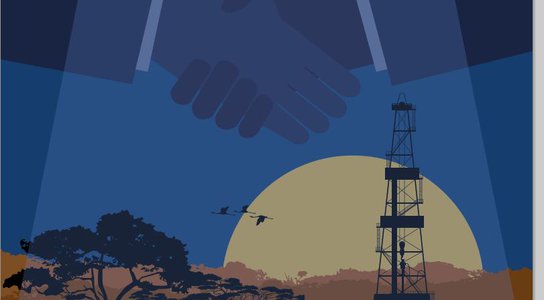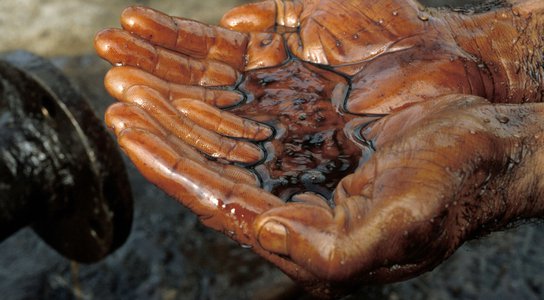The Uganda government should be commended for publishing a list of seven bidders for its first round of oil licences, said Global Witness today. However, the organisation cited continued concerns about environmental risks posed by oil exploration to unique habitats including the Virunga World Heritage site, and the suitability of some of the oil companies under consideration.
“Oil contracts can last for 30 years or more, and oil exploration can do irreversible damage to both people and environment. So choosing the right companies is vital, especially with operations taking place in such sensitive areas,” said George Boden of Global Witness. “The government should carry out careful checks into the background of each company and publish the details of all of their real owners to ensure that they are suitable for the job and that there is no conflict of interest,” continued Boden.
All of the oil blocks in the current licencing round overlap with environmentally protected areas, but one, the Ngaji block, is of particular concern. This area covers half of Lake Edward and large part of Queen Elizabeth National Park, and forms part of the same ecosystem as Virunga – Africa’s oldest national park and a UNESCO World Heritage site. There is a major international campaign to protect this area, home to some of the world’s last remaining mountain gorillas, from oil extraction.
In August 2015, Global Witness published a press release raising questions about two companies that have now submitted bids, Oranto Petroleum and Glint Energy (1).
“The Virunga area is one of the most bio-diverse on earth. Oil drilling here would be a disaster for the people and animals that depend on it. Uganda and Congo should make a deal with UNESCO to protect Virunga from oil activities” said Boden.
The government should publish the final contracts so that people can see the deal the government has signed on their behalf and the social and environmental protections they contain.
/ ENDS
Contacts
Notes to editor:
- In
2007, Oranto’s Chairman, Prince Arthur Eze, authorised a payment to Liberian
Parliamentary officials, which was deemed by the Liberian Auditor General to be
a bribe paid in order to secure an oil contract. In a letter received by us
from Oranto’s lawyers they accept that Prince Arthur Eze did authorise a
payment of US$1,500 dollars to parliamentary officials but stated that the
payment was not a bribe, that it was never intended to influence the awarding
of contracts, and that it was in fact never made.
- Glint
Energy LLC from the USA was incorporated on the 29th of May 2009 but on the 13th of May 2011 the company was forfeited
for failure to file a tax return and/or pay state franchise tax. It was only
reinstated on the 16th of
July 2015. It is unclear from its website whether Glint has any active oil
licences and therefore whether the company has the expertise to explore for
oil.
- For more information on the campaign
to prevent oil activities in the Virunga area see here.
- UNESCO wrote to the Ugandan
government in August 2015 reminding it of its obligations under the UNESCO
convention and stating that drilling in Lake Edward is incompatible with World
Heritage status. The letter is available here.
- In December 2015, the European
Parliament passed a resolution calling on member’s states to help prevent
drilling in the Virunga National Park and surrounding areas and citing the
Ugandan oil licencing round as a significant risk. Read Global Witness response
and the resolution itself here.
- In January 2016, over 60 NGOs and
tourist bodies signed a joint statement calling for a deal between Uganda, the
DRC and UNESCO to prevent drilling in the area. Read the statement here.
- In September 2014 Global Witness
published two leaked Production Sharing Agreements alongside a detailed
analysis and an economic modelling tool. Read them here.
You might also like
-
Briefing Uganda's donors must push for oil transparency
Donor engagement in Uganda's oil and gas sector.
-
Report A Good Deal Better?
Uganda's secret oil contracts explained.
-
Briefing Blessing or curse?
Can Uganda learn the lessons from other developing countries that discover oil?